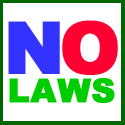A Guide to the Drug-Legalization Movement
Organization
Suite B-500
Washington D.C. 20008-2328
Phone: 202-537-5005
Fax: 202-537-3007
501
© (3) nonprofit tax-exempt organization
1986
To
serve as a forum for political leaders and the public to learn about alternative
drug policies, which include:
1) harm reduction–policies that help drug users to help themselves,
such as needle-exchange programs, which can lower the risk of spreading
deadly diseases like HIV/AIDS
2) decriminalization–selectively enforcing the laws on the books
to focus on major drug offenders, as in Holland
3) medicalization–allowing doctors to prescribe otherwise illegal
drugs to patients under certain conditions, as is the case now in Arizona
and California, or allowing doctors to maintain an addict (on the drug
to which the person is addicted), as in Great Britain and Switzerland
4) legalization–making drugs available to adults in a regulated market,
similar to U.S. alcohol laws.
(Drug Policy Foundation Website, September 28,1997)
1) To redirect state priorities from prison construction and incarceration of nonviolent drug offenders toward cost-effective and humane alternatives in order to encourage a transition from a punitive approach to a harm reduction approach to drug problems
2) To eliminate or reduce mandatory minimum sentencing for drug-related offenses at both the state and federal level
3) To eliminate the criminal prohibition of drug use
4) To create policies which overturn or avoid the use of invasive drug
testing
5) To reduce the excesses of civil asset forfeiture
6) To expand the availability of methadone treatment options, to increase the range of acceptable methadone providers, and to transition the federal government from a regulatory to a licensing approach to methadone
7) To forge public policies in collaboration with public health, chronic care, long-term care providers, and pain patients that allow physicians to prescribe medically appropriate pain medication; to develop state public policies that serve as alternatives to invasive triplicate-prescription systems and other policies restricting appropriate medical practice
8) To institute state policies that support medical marijuana'
9) To expand the range of street-based harm- reduction initiatives for
poly-substance users by forging demonstrable links to mainstream health
care, treatment, and employment training sources
10) To start new needle-exchange efforts in unserved states or cities and to advocate for needle-exchange programs in states currently prohibiting such programs
11) To develop research-based motivational and truthful prevention curricula aimed at young people that offer a viable alternative to DARE and other zero tolerance-based approaches
12) To develop international harm-reduction alliances involving multiple
countries in places like Latin America, Asia, Africa, and Eastern Europe.
(The Drug Policy Foundation: Creating More Reasoned and Compassionate
Drug Policies, Grant Program Guidelines, August 1999.)
2000
Board of Directors and Executive Committee
1999 Board of Directors and Executive Committee
1998 Board of Directors and Executive Committee
1997 Board of Directors and Advisory Board
1996
Board of Directors and Advisory Board
1995
Board of Directors and Advisory Board
1994
Board of Directors And Advisory Board
1993
Board of Directors and Advisory Board
1989
Board of Directors and Advisory Board
© Copyright 2001 National Families in Action. Author: Sue Rusche. All rights reserved.
Questions? Write nfia@nationalfamilies.org
